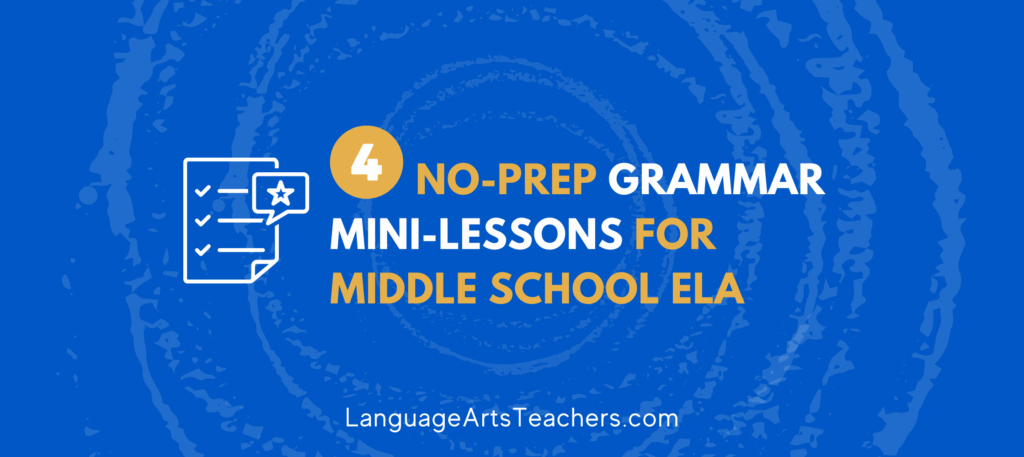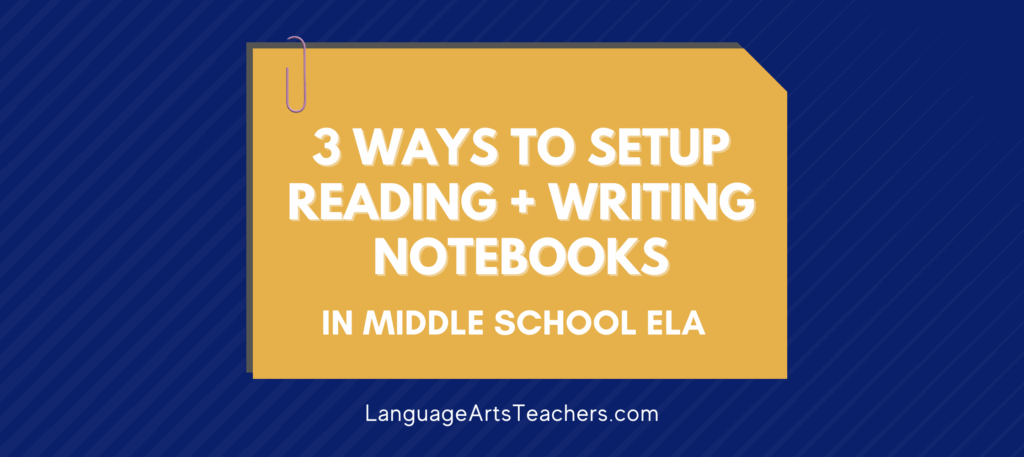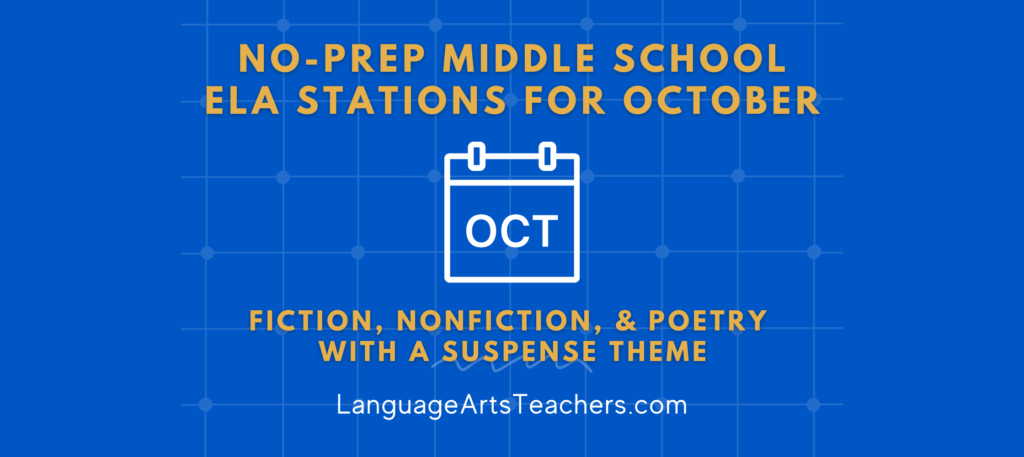January is kind of a sluggish part of the year for Middle School ELA/R teachers and students since we’re all coming back from break. . . I know for me, it’s sometimes hard to get back into my flow as a teacher because on one hand, I do feel really rested and creative while on the other hand, I feel like my students have sooo many gaps in knowledge and there’s a LOT of work to do.
On top of that, we’ve got to get — and keep — students engaged, and that’s tough when I feel like I’m working on my own growth mindset (new year, new energy, new goals, new inspiration, fresh start, etc) but my students don’t feel that way. . .
This is why my all-time go-to lesson in January is a growth mindset lesson that involves a discussion (and paired passage for reading) about LUCK.
- How often do students blame their circumstances on luck, or lack thereof?
- How many are stuck in the victim role or victim mindset where they don’t know how to move forward?
- How many have never heard of how to change their minds, empowering a new perspective and taking action and owning their lives and their choices?
The concept of “luck” or “being lucky” or unlucky is a passive, victim mindset, and I love to use the following lesson to help my students think deeply about this so we can ALL move forward as we enter the new year.
Objective Students will be able to use text evidence to support their inferences.
“I Can” Statement I can use the best text evidence to support my inferences.
Common Core Standards – College & Career Readiness (Grades 6 – 7 – 8) CCSS.ELA-LITERACY.CCRA.R.1 Read closely to determine what the text says explicitly and to make logical inferences from it; cite specific textual evidence when writing or speaking to support conclusions drawn from the text.
Texas TEKS Standards (Grades 6 – 7 – 8) Students analyze, make inferences and draw conclusions about persuasive text and provide evidence from text to support their analysis.
{ If you don’t use those standards, it’s OK! The point is that you don’t have to start from scratch! What standards in your area are similar? Regardless of where you’re teaching, chances are that your students need practice with those same learning targets. }
Procedures
1) Provide students with access to this written speech online located at http://www.best-speech-topics.com/fun-persuasive-speech.html “Luck is Not a Matter of Chance…Lucky You!” by Christine Albury
2) Students complete “Luck Speech Analysis” handout
3) Small group or whole class guided discussion may follow
4) Quotes about luck (can be done before or after the reading of the article)
About the speech itself that students will be reading:
The speech you’ll find by following the link is about luck.
I love teaching this at the beginning of the New Year because I want to show my students that THEY create their own “luck” in life. They are capable of so much, and it’s ultimately up to them–not chance, or fate, or luck–to go after their dreams. The writer / speaker attempts to convince the audience that luck really has nothing to do with “chance”— it has to do with a lot of things that you CAN control. You make your own luck, in other words.
The discussion + writing questions I typically provide to walk students through a thoughtful analysis of the text include things like:
1) In this passage, the speaker claims that …
2) This speaker begins the passage with a quotation. What is something the speaker says later on that supports her use of that quotation?
3) What was the writer’s purpose for including the anecdote (short side story in paragraph 3) about Steven Spielberg? How does that anecdote help with what he’s trying to say about luck?
4) According to paragraph 4, lucky people aren’t really lucky. They’re people who —
5) The speech writer knows to include some research and studies in order to make sure the audience takes her seriously. Which facts seem most helpful in this particular speech topic?
^^^Those questions are in the format of task cards so students can read, speak, and listen collaboratively. THEN I have them separate and write their own responses.
Next, we refer to thought-provoking quotes about luck, like these⤵️

Various ways to use these quotes in your class
Create an interactive way to get your students up, moving, and involved. These quotes can provide a springboard into a discussion of whether having “luck” or believing that some people are lucky and some aren’t is part of a growth mindset or part of a static, stuck, closed mindset.
This activity works as a connective piece to the “Luck” article students read, and really, the quote activity can be done either before or after reading that article. I’ve done it both ways, and either way is effective for different reasons — Either use the quotes FIRST and THEN dive into the article, or read / discuss the article first and do the quotes last. Experiment!
Here’s what I like to actually DO with those quotes:
– Read the quotes one at a time aloud and have your students line up in a way that represents how strongly they agree with the quote.
– Imagine a line along the length of your room (or hallway!) with “Strongly Agree” on one end of the line and “Strongly Disagree” at the other end. In between could be phrases like “Agree / Neutral / Disagree” or others that you think of.
– As you read each quote, students can physically move to the part of the line that represents their opinions of the quotes.
– An alternative is to use corners or sections of your classroom instead of an actual line. Look for the quote that results in the most diversity among students and then when you finish, go back to the quote and guide students in a group discussion or even a group writing activity based on their reasons.
*** Again, you may do this activity before or after the reading of the “Luck” article.
A Fresh Start for a Growth Mindset
Again, here’s the WHY behind this thought-provoking lesson I use each January.
Ok, so we often hear students (and even ourselves, I admit!) refer to someone as “being lucky.” Maybe we feel like last year was an unlucky year, and NOW we’re starting fresh–perhaps THIS year I’ll have better luck. This way of thinking is actually a very limited way of thinking because it implies that we can’t have, do, or accomplish something if we’re “not lucky” like someone else supposedly is. In reality, we can control much of what happens in our lives (not everything, but most things!).
This growth mindset activity (perfect for those first couple of days right after break in January) moves students through a way of thinking, seeing, and questioning what “luck” means, guiding them through a text-dependent analysis, and an engaging discussion of an article (and quotations!) about luck.
Get the Growth Mindset Luck Lesson ready-made and totally done for you as part of my entire Seasonal ELA Engagement Pack with the ✨Monday Method✨ Collection. Together, these two sets of resources will carry you not just through the holiday season, but through the entire school year as well!





